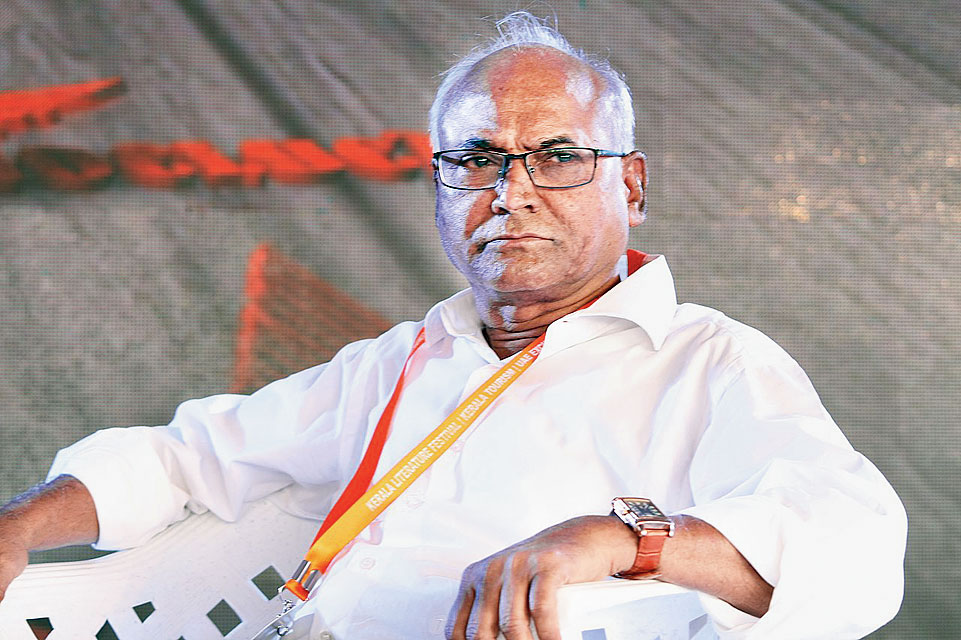A central university has asked its departments to prepare a shelf of research projects in line with “national priorities” for its PhD scholars, drawing upon a resolution adopted by vice-chancellors at a government-organised meeting in December.
The Central University of Kerala issued the directive in a circular to its deans of schools and heads of departments on Wednesday.
Several academics have termed the move an “outright attack” on the freedom of researchers and the process of knowledge-gathering. One of them said such policies would reduce the universities to “caged parrots” — a term the Supreme Court had used to describe the CBI’s capitulation to the government’s wishes.
At a meeting organised by the Union HRD ministry on December 15, the VCs of all the 40 central universities had passed a resolution suggesting research projects focus on “national priorities”.
“In accordance with the decisions of the said meeting, the vice-chancellor has directed to implement the following in Central University of Kerala: a) To discourage research in irrelevant areas,” Wednesday’s circular said.
“When Fellows are being admitted for PhDs, the topics for the thesis should be in accordance with the national priorities. Allotting privilege (sic) topics to the PhD students should be dispensed with.”
The current norm is for a student to propose a research topic during the admission interview. The interviewers — members of the university’s faculty — approve the suggestion or seek a modification or reject it.
Kesav Kumar, a Delhi University professor and Ambedkarite scholar, said the December resolution and Wednesday’s circular reflected a government bid to impose its political priorities on research students in the name of “national priorities”.
“Research cannot flourish through reductionism (narrowing the pool of topics). Prescriptive research means limiting the scope of the pursuit of knowledge,” he said.
Kumar said the so-called “national priorities” are decided by upper-caste and upper-class people to protect their supremacy. He feared the new policy would kill research on subjects such as caste, inequality and the deprivation of the dignity of life to large sections of the population. “Why such a diktat? Does the government believe that the universities are not working in favour of national interest?” he asked.
Rajesh Jha, a member of Delhi University’s executive council, said: “Universities are places where one can challenge existing knowledge and create new knowledge. Any constraints on the horizon of knowledge will reduce the universities to caged parrots.”
Academic and author Kancha Ilaiah said the roots of the word “university” suggest that varsities are meant to research anything in the universe.
“If the country’s universities now have to confine their research to national issues alone, they should be renamed as ‘Indiansity’. Knowledge has no boundaries. Such a myopic approach is against the very idea of knowledge,” he said.
He alleged that the NDA regime perhaps expected Indian universities to research subjects such as wars, cow protection and the Hindu scriptures rather than issues relating to Dalits, minorities and women.
Y.S. Alone, a Jawaharlal Nehru University professor, said that those in power cannot be allowed to dictate research topics to universities.
“This is an outright attack on institutions. The Gujarat government has implemented this model in the state. This is against the liberties granted by the Constitution,” he said.
“The (government’s) objective is to confine research to ritualistic and cultural traditions and away from caste atrocities,” he said.
Higher education secretary R. Subrahmanyam defended the VCs’ resolution but denied “any instruction from the HRD ministry”. But he added in the same breath that “it’s natural to aspire that the universities work for nation-building, especially when the government is investing hugely on these institutions”.
On the critics’ views, he said: “How can they say that knowledge creation shall not be for nation-building?”










